Year in Review 2007—Editor’s Choice of the Global Human Capital Journal
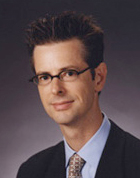 As I reflect on 2007 and create strategy for 2008, several macro-trends come into sharp relief, and I believe that some of them might be helpful to you as you conduct your own planning. As always, I focus on emerging phenomena because they are areas in which disruption and discontinuous change are acting on markets, thereby elevating threats and opportunities. Helping leaders to create strategy to manage the risk of unusual market developments is the focus of my consulting practice. As I reflect on 2007 and create strategy for 2008, several macro-trends come into sharp relief, and I believe that some of them might be helpful to you as you conduct your own planning. As always, I focus on emerging phenomena because they are areas in which disruption and discontinuous change are acting on markets, thereby elevating threats and opportunities. Helping leaders to create strategy to manage the risk of unusual market developments is the focus of my consulting practice.
In 2007 it became clear to me that we were entering a profound social transformation that would produce an unimaginable degree of change. Unlike the technology-precipitated change that I’ve been helping people with since the 1990s, technology is shifting to the background now, and pervasive social change is taking the stage. Look for disruption in all areas affected by how people connect, communicate, purchase and collaborate: business, politics, community and leisure. Moreover, these changes are completely global with all the variations that engenders.
I can’t tell […]
Will China’s Rise Lead to an Environmental Catastrophe? summarizes The Economist Chicago debate, examining the environmental fallout of the Chinese economic supernova—sibling rivalry rears its ugly head.
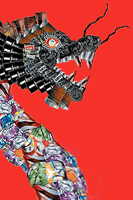 In 2007, nary an RSS feed or the page of a newspaper (for those still inclined ,^) does not mention China’s exploding impact on the global stage: China is truly an economic supernova, and it is breaking almost any record for development that is laid before it. However, China’s breakneck development is accompanied by grave environmental fallout: for example, as the host of the Beijing 2008 Olympic Games, the city is designing extreme measures to ensure that the air is clean enough for the athletes to breathe. The chief culprit is coal, a key source for China’s insatiable need for electric power, and a resource that the country has in abundance. For key facts on China, I suggest The Economist’s Country Briefing or CSRA’s Emerging Markets category (in depth) or China tag (mentions). In 2007, nary an RSS feed or the page of a newspaper (for those still inclined ,^) does not mention China’s exploding impact on the global stage: China is truly an economic supernova, and it is breaking almost any record for development that is laid before it. However, China’s breakneck development is accompanied by grave environmental fallout: for example, as the host of the Beijing 2008 Olympic Games, the city is designing extreme measures to ensure that the air is clean enough for the athletes to breathe. The chief culprit is coal, a key source for China’s insatiable need for electric power, and a resource that the country has in abundance. For key facts on China, I suggest The Economist’s Country Briefing or CSRA’s Emerging Markets category (in depth) or China tag (mentions).
The Economist and WBEZ 91.5 FM presented an Oxford-style debate on the effect that China’s rise […]
Caterpillar CEO Pitches Free Trade to Business Leaders at Executives’ Club asks whether the U.S. is at turning point with global economy in the balance—A lack of courage?
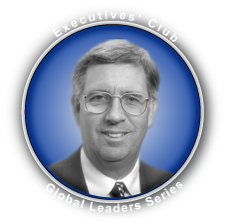 James W. Owens, Chairman and Chief Executive Officer of Caterpillar Inc., beseeched U.S. business and government leaders to find the courage to save free trade. The speaker at the Executives’ Club of Chicago’s Global Leaders Series, Owens addressed a packed house at the Hilton Chicago on 16 October 2007. His speech was immediately followed by the Club’s Technology Conference at which CIOs advised their peers on the emerging role of the CIO in the “networked economy 2.0.” James W. Owens, Chairman and Chief Executive Officer of Caterpillar Inc., beseeched U.S. business and government leaders to find the courage to save free trade. The speaker at the Executives’ Club of Chicago’s Global Leaders Series, Owens addressed a packed house at the Hilton Chicago on 16 October 2007. His speech was immediately followed by the Club’s Technology Conference at which CIOs advised their peers on the emerging role of the CIO in the “networked economy 2.0.”
A Ph.D. economist with extensive global management experience, Owens made a very convincing argument that the U.S. and the global economy are at a turning point. It is time for the U.S. to lead by example to assure the continuance of the free trade juggernaut that has produced so much wealth in the world. If it fails, the world stands before the prospect of sharply curtailed trade.
Following […]
Content Providers Hobbled by Conventional Thinking—UGC May Fill Content Vacuum in Plum Mobile Video Market
 At Digital Hollywood Chicago, speakers held that video would grow significantly as a portion of content experienced on the three screens. However, no panelist gave a compelling reason that video would grow—and there are many problems that will dampen adoption in the short- to medium-term. I question whether they are just trying to drive demand to drive their businesses. Don’t forget that this conference is digital Hollywood. At Digital Hollywood Chicago, speakers held that video would grow significantly as a portion of content experienced on the three screens. However, no panelist gave a compelling reason that video would grow—and there are many problems that will dampen adoption in the short- to medium-term. I question whether they are just trying to drive demand to drive their businesses. Don’t forget that this conference is digital Hollywood.
Myopia is content owners’ biggest problem: they seek to repurpose existing content for the mobile screen to amortize past investments. This logic permeates their thinking and prevents innovation. Meanwhile, consumers are awakening to the excitement of consumer-produced content, the prices of software tools are falling, and skills are increasing. True, the production quality is usually amateurish, but UGC (user-generated content) is usually free, fresh and relevant—to niches, which is where the action is. Users produce content for fun, and they can afford to address topics that “professional” content cannot. Mass-produced vapid content will still have a place in the consumer entertainment universe, but it will decreasingly […]
Leadership, Trust and the Globally Integrated Enterprise reports on IBM’s CEO as he articulated a prescient vision for the enterprise—adapting to the Knowledge Economy.
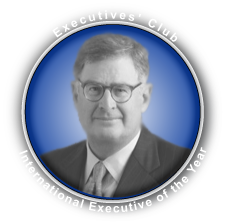 Samuel J. Palmisano, Chairman, President and Chief Executive Officer of IBM Corporation, outlined a new version of the enterprise at a lunch honoring him with the Executives’ Club of Chicago’s Thirteenth Annual International Executive of the Year Award April 12, 2007 at the Chicago Hilton. Entitled “Leadership, Trust and the Globally Integrated Enterprise,” his speech emphasized key points from his Summer 2006 article of the same name in Foreign Affairs. He was especially interesting to hear due to his experience with leading one of the world’s foremost global enterprises as well as his insight from serving global enterprises in every industry. Samuel J. Palmisano, Chairman, President and Chief Executive Officer of IBM Corporation, outlined a new version of the enterprise at a lunch honoring him with the Executives’ Club of Chicago’s Thirteenth Annual International Executive of the Year Award April 12, 2007 at the Chicago Hilton. Entitled “Leadership, Trust and the Globally Integrated Enterprise,” his speech emphasized key points from his Summer 2006 article of the same name in Foreign Affairs. He was especially interesting to hear due to his experience with leading one of the world’s foremost global enterprises as well as his insight from serving global enterprises in every industry.
Yesterday’s model for the global enterprise, the multinational corporation (MNC), looks increasingly outdated due to widespread adoption of standards-based technology, increasingly standardized work processes and a liberalizing regulatory environment. Today, knowledge-based resources are available globally, and the enterprise’s means to create value is choosing how and where to tap the resources to […]
Economic Outlook for 2007 Reveals Pockets of Opportunity + Political Handicapping
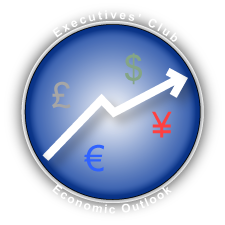 The Executives’ Club of Chicago assembled an all-star panel to give Midwest business leaders their guidance for various aspects of the U.S. economy in 2007. Diane Swonk, Chief Economist of Mesirow Financial, Alan Murray, Assistant Managing Editor of The Wall Street Journal and Robert “Bob” Froehlich, Chairman of the Investment Strategy Committee, Deutsche Asset Management broke out their respective crystal balls for 2007, and the audience was not disappointed for lack of insight or wit. The session was scintillatingly moderated by Terry Savage, Financial Columnist of the Chicago Sun-Times. The Executives’ Club of Chicago assembled an all-star panel to give Midwest business leaders their guidance for various aspects of the U.S. economy in 2007. Diane Swonk, Chief Economist of Mesirow Financial, Alan Murray, Assistant Managing Editor of The Wall Street Journal and Robert “Bob” Froehlich, Chairman of the Investment Strategy Committee, Deutsche Asset Management broke out their respective crystal balls for 2007, and the audience was not disappointed for lack of insight or wit. The session was scintillatingly moderated by Terry Savage, Financial Columnist of the Chicago Sun-Times.
The consensus was that the U.S. economy would have a relatively benign year in 2007. All panelists predicted a higher Dow, and their predictions concurred with Wall Street’s most accurate ,^) indicator, the Super Bowl Predictor. Little of import will happen on the political front, the U.S. economy will grow at a slower pace, and investment returns will be generally highest outside the U.S. Elsewhere, consumer empowerment reared its head in the executive pay issue, […]
China Analysis and Outlook 2007 offers political insight into the global knowledge market.
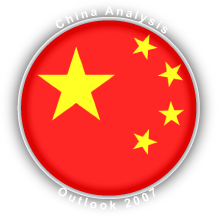 The Strategic Management Association, the Harvard Business School and the CDMA sponsored the 2007 China Outlook, which was given by Lyric Hughes-Hale, Founder China Online in Chicago 9 January 2007. Her presentation was preceded by David Hale’s 2007 Economic Forecast. The Strategic Management Association, the Harvard Business School and the CDMA sponsored the 2007 China Outlook, which was given by Lyric Hughes-Hale, Founder China Online in Chicago 9 January 2007. Her presentation was preceded by David Hale’s 2007 Economic Forecast.
As a long-time China watcher and analyst, Lyric has rare and unusual insights to which I’ll try to do justice before giving my observations. The Global Human Capital Journal also covered the 2006 China Outlook.
[…]
Economic Insight Behind the Global Knowledge Market
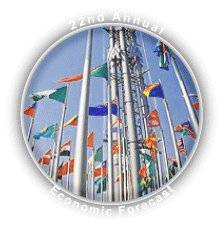 The Strategic Management Association, the Harvard Business School and the CDMA sponsored the 2007 Economic Forecast featuring David Hale, Chairman of Prince Street Capital Management and Lyric Hughes-Hale, Founder China Online. David has international renown as an international economist, and he presented his encyclopedic knowledge and perspective on global economic trends in Chicago on 9 January 2007. Afterward, Lyric shared her insights on China in Part II of the evening. The Global Human Capital Journal also covered the 2006 Economic Forecast. The Strategic Management Association, the Harvard Business School and the CDMA sponsored the 2007 Economic Forecast featuring David Hale, Chairman of Prince Street Capital Management and Lyric Hughes-Hale, Founder China Online. David has international renown as an international economist, and he presented his encyclopedic knowledge and perspective on global economic trends in Chicago on 9 January 2007. Afterward, Lyric shared her insights on China in Part II of the evening. The Global Human Capital Journal also covered the 2006 Economic Forecast.
David’s forecast was global in scope but adapted to his U.S. audience. It reflected many of the numbers behind the global shift to the Knowledge Economy, and how this is driving global prosperity:
[…]
 Chinese Prescription for Healthcare Providers predicts that China is showing itself to be very innovative in health care by implementing market-based offerings. The TEDA International Cardiovascular Hospital, just outside Beijing, offers six levels of service, ranging from $6.70 to $3,200 per night, as reported in “Hospital Caters to China’s Wealthy and Poor” in The Wall Street Journal or the hospital website. The lowest class of service has patients sharing a small room with other patients while “first class” includes a suite with a private gym, a garden, massage chair and other amenities. Chinese Prescription for Healthcare Providers predicts that China is showing itself to be very innovative in health care by implementing market-based offerings. The TEDA International Cardiovascular Hospital, just outside Beijing, offers six levels of service, ranging from $6.70 to $3,200 per night, as reported in “Hospital Caters to China’s Wealthy and Poor” in The Wall Street Journal or the hospital website. The lowest class of service has patients sharing a small room with other patients while “first class” includes a suite with a private gym, a garden, massage chair and other amenities.
China has an aging population of 1.3 billion to whom the government is struggling to provide health care. It regulates the prices of medicine and subsidizes basic services at public hospitals, but most people do not have western-type insurance and end up paying a major portion of their health care. The stakes are high today to solve the health care problem, and they are getting higher as the population ages.
[…]
A Must-read Guide to the Importance of Web 2.0 and the Knowledge Economy
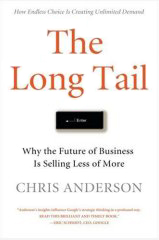 The Long Tail is a watershed book that reflects many of the profound socioeconomic changes wrought by the transition from the Industrial Economy to the Knowledge Economy. The “Long Tail” represents the splintering of the mass market—what is happening, why and how you can thrive in the new era of the niche. Moreover, it shows how the mass market was a temporary phenomenon that developed because niches were not economically viable for producers to address. The Long Tail is a watershed book that reflects many of the profound socioeconomic changes wrought by the transition from the Industrial Economy to the Knowledge Economy. The “Long Tail” represents the splintering of the mass market—what is happening, why and how you can thrive in the new era of the niche. Moreover, it shows how the mass market was a temporary phenomenon that developed because niches were not economically viable for producers to address.
Chris Anderson is editor-in-chief of Wired, and the book has an appreciation for culture, the economics of technology and the importance of innovation. It’s also very well written: Anderson tackles some fairly abstract concepts, but the reader doesn’t trip over them. It’s possible to read the book quickly, but there is plenty of substance for a detailed, reflective reading as well. Difficult to over-recommend!
The Long Tail offers an insightful look into the byte-oriented Knowledge Economy and its movement away from the zero-sum, bits-oriented Industrial Economy—and what this holds for business and culture. The book […]
|
|
 As I reflect on 2007 and create strategy for 2008, several macro-trends come into sharp relief, and I believe that some of them might be helpful to you as you conduct your own planning. As always, I focus on emerging phenomena because they are areas in which disruption and discontinuous change are acting on markets, thereby elevating threats and opportunities. Helping leaders to create strategy to manage the risk of unusual market developments is the focus of my consulting practice.
As I reflect on 2007 and create strategy for 2008, several macro-trends come into sharp relief, and I believe that some of them might be helpful to you as you conduct your own planning. As always, I focus on emerging phenomena because they are areas in which disruption and discontinuous change are acting on markets, thereby elevating threats and opportunities. Helping leaders to create strategy to manage the risk of unusual market developments is the focus of my consulting practice.
 In 2007, nary an RSS feed or the page of a newspaper (for those still inclined ,^) does not mention China’s exploding impact on the global stage: China is truly an economic supernova, and it is breaking almost any record for development that is laid before it. However, China’s breakneck development is accompanied by grave environmental fallout: for example, as the host of the Beijing 2008 Olympic Games, the city is designing extreme measures to ensure that the air is clean enough for the athletes to breathe. The chief culprit is coal, a key source for China’s insatiable need for electric power, and a resource that the country has in abundance. For key facts on China, I suggest The Economist’s Country Briefing or CSRA’s Emerging Markets category (in depth) or China tag (mentions).
In 2007, nary an RSS feed or the page of a newspaper (for those still inclined ,^) does not mention China’s exploding impact on the global stage: China is truly an economic supernova, and it is breaking almost any record for development that is laid before it. However, China’s breakneck development is accompanied by grave environmental fallout: for example, as the host of the Beijing 2008 Olympic Games, the city is designing extreme measures to ensure that the air is clean enough for the athletes to breathe. The chief culprit is coal, a key source for China’s insatiable need for electric power, and a resource that the country has in abundance. For key facts on China, I suggest The Economist’s Country Briefing or CSRA’s Emerging Markets category (in depth) or China tag (mentions). James W. Owens, Chairman and Chief Executive Officer of Caterpillar Inc., beseeched U.S. business and government leaders to find the courage to save free trade. The speaker at the Executives’ Club of Chicago’s Global Leaders Series, Owens addressed a packed house at the Hilton Chicago on 16 October 2007. His speech was immediately followed by the Club’s Technology Conference at which CIOs advised their peers on the emerging role of the CIO in the “networked economy 2.0.”
James W. Owens, Chairman and Chief Executive Officer of Caterpillar Inc., beseeched U.S. business and government leaders to find the courage to save free trade. The speaker at the Executives’ Club of Chicago’s Global Leaders Series, Owens addressed a packed house at the Hilton Chicago on 16 October 2007. His speech was immediately followed by the Club’s Technology Conference at which CIOs advised their peers on the emerging role of the CIO in the “networked economy 2.0.” At Digital Hollywood Chicago, speakers held that video would grow significantly as a portion of content experienced on the three screens. However, no panelist gave a compelling reason that video would grow—and there are many problems that will dampen adoption in the short- to medium-term. I question whether they are just trying to drive demand to drive their businesses. Don’t forget that this conference is digital Hollywood.
At Digital Hollywood Chicago, speakers held that video would grow significantly as a portion of content experienced on the three screens. However, no panelist gave a compelling reason that video would grow—and there are many problems that will dampen adoption in the short- to medium-term. I question whether they are just trying to drive demand to drive their businesses. Don’t forget that this conference is digital Hollywood. Samuel J. Palmisano, Chairman, President and Chief Executive Officer of IBM Corporation, outlined a new version of the enterprise at a lunch honoring him with the Executives’ Club of Chicago’s Thirteenth Annual International Executive of the Year Award April 12, 2007 at the Chicago Hilton. Entitled “Leadership, Trust and the Globally Integrated Enterprise,” his speech emphasized key points from his Summer 2006 article of the same name in Foreign Affairs. He was especially interesting to hear due to his experience with leading one of the world’s foremost global enterprises as well as his insight from serving global enterprises in every industry.
Samuel J. Palmisano, Chairman, President and Chief Executive Officer of IBM Corporation, outlined a new version of the enterprise at a lunch honoring him with the Executives’ Club of Chicago’s Thirteenth Annual International Executive of the Year Award April 12, 2007 at the Chicago Hilton. Entitled “Leadership, Trust and the Globally Integrated Enterprise,” his speech emphasized key points from his Summer 2006 article of the same name in Foreign Affairs. He was especially interesting to hear due to his experience with leading one of the world’s foremost global enterprises as well as his insight from serving global enterprises in every industry. The Executives’ Club of Chicago assembled an all-star panel to give Midwest business leaders their guidance for various aspects of the U.S. economy in 2007. Diane Swonk, Chief Economist of Mesirow Financial, Alan Murray, Assistant Managing Editor of The Wall Street Journal and Robert “Bob” Froehlich, Chairman of the Investment Strategy Committee, Deutsche Asset Management broke out their respective crystal balls for 2007, and the audience was not disappointed for lack of insight or wit. The session was scintillatingly moderated by Terry Savage, Financial Columnist of the Chicago Sun-Times.
The Executives’ Club of Chicago assembled an all-star panel to give Midwest business leaders their guidance for various aspects of the U.S. economy in 2007. Diane Swonk, Chief Economist of Mesirow Financial, Alan Murray, Assistant Managing Editor of The Wall Street Journal and Robert “Bob” Froehlich, Chairman of the Investment Strategy Committee, Deutsche Asset Management broke out their respective crystal balls for 2007, and the audience was not disappointed for lack of insight or wit. The session was scintillatingly moderated by Terry Savage, Financial Columnist of the Chicago Sun-Times. The Strategic Management Association, the Harvard Business School and the CDMA sponsored the 2007 China Outlook, which was given by Lyric Hughes-Hale, Founder China Online in Chicago 9 January 2007. Her presentation was preceded by David Hale’s 2007 Economic Forecast.
The Strategic Management Association, the Harvard Business School and the CDMA sponsored the 2007 China Outlook, which was given by Lyric Hughes-Hale, Founder China Online in Chicago 9 January 2007. Her presentation was preceded by David Hale’s 2007 Economic Forecast. The Strategic Management Association, the Harvard Business School and the CDMA sponsored the 2007 Economic Forecast featuring David Hale, Chairman of Prince Street Capital Management and Lyric Hughes-Hale, Founder China Online. David has international renown as an international economist, and he presented his encyclopedic knowledge and perspective on global economic trends in Chicago on 9 January 2007. Afterward, Lyric shared her insights on China in Part II of the evening. The Global Human Capital Journal also covered the 2006 Economic Forecast.
The Strategic Management Association, the Harvard Business School and the CDMA sponsored the 2007 Economic Forecast featuring David Hale, Chairman of Prince Street Capital Management and Lyric Hughes-Hale, Founder China Online. David has international renown as an international economist, and he presented his encyclopedic knowledge and perspective on global economic trends in Chicago on 9 January 2007. Afterward, Lyric shared her insights on China in Part II of the evening. The Global Human Capital Journal also covered the 2006 Economic Forecast. Chinese Prescription for Healthcare Providers predicts that China is showing itself to be very innovative in health care by implementing market-based offerings. The TEDA International Cardiovascular Hospital, just outside Beijing, offers six levels of service, ranging from $6.70 to $3,200 per night, as reported in “Hospital Caters to China’s Wealthy and Poor” in The Wall Street Journal or the hospital website. The lowest class of service has patients sharing a small room with other patients while “first class” includes a suite with a private gym, a garden, massage chair and other amenities.
Chinese Prescription for Healthcare Providers predicts that China is showing itself to be very innovative in health care by implementing market-based offerings. The TEDA International Cardiovascular Hospital, just outside Beijing, offers six levels of service, ranging from $6.70 to $3,200 per night, as reported in “Hospital Caters to China’s Wealthy and Poor” in The Wall Street Journal or the hospital website. The lowest class of service has patients sharing a small room with other patients while “first class” includes a suite with a private gym, a garden, massage chair and other amenities. The Long Tail is a watershed book that reflects many of the profound socioeconomic changes wrought by the transition from the Industrial Economy to the Knowledge Economy. The “Long Tail” represents the splintering of the mass market—what is happening, why and how you can thrive in the new era of the niche. Moreover, it shows how the mass market was a temporary phenomenon that developed because niches were not economically viable for producers to address.
The Long Tail is a watershed book that reflects many of the profound socioeconomic changes wrought by the transition from the Industrial Economy to the Knowledge Economy. The “Long Tail” represents the splintering of the mass market—what is happening, why and how you can thrive in the new era of the niche. Moreover, it shows how the mass market was a temporary phenomenon that developed because niches were not economically viable for producers to address.